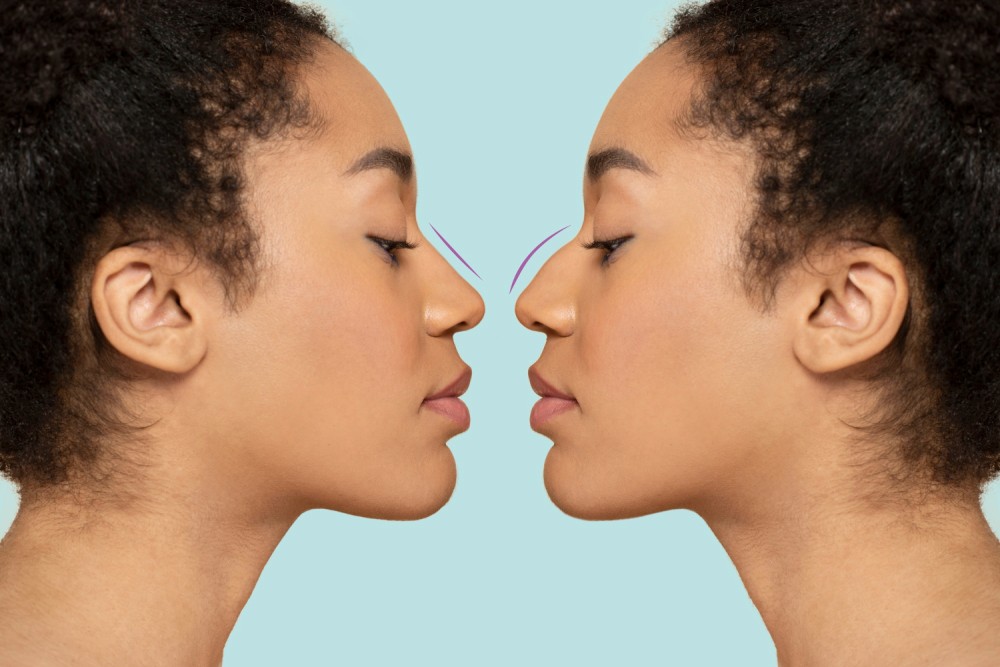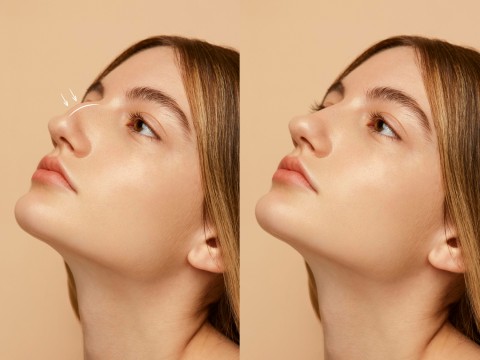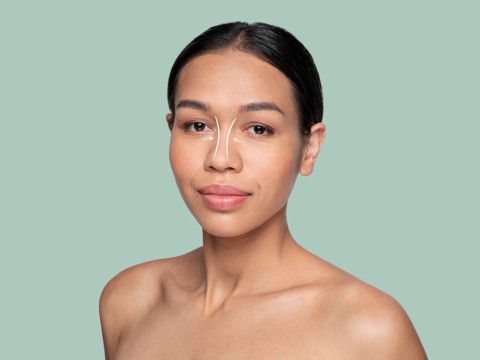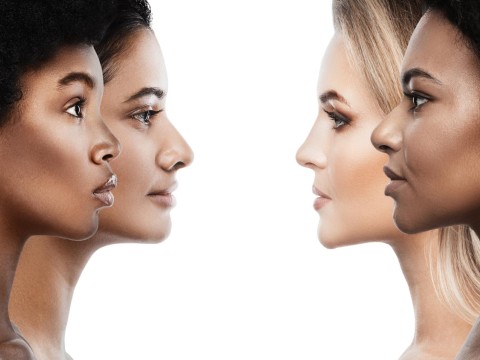Transmed Clinic: Rhinoplasty
Rhinoplasty, or nose surgery, is one of the most common plastic surgeries today. The purpose of rhinoplasty is reshaping and reconstructing the nose. It may be indicated to enhance the general appearance of the face by refinement in the shape of the nose, enhancement of breathing, and correction of structural defects of the nose. People get rhinoplasty because they have a crooked nose, a big nasal hump, or simply just for an good-looking nose.
What is Rhinoplasty?
Rhinoplasty is a surgical operation of the nose, whereby the shape, size, and proportion are changed. It may be done to enhance appearance or to produce better nasal functions. This surgery generally reshapes the inner bone and cartilage to give a more desired appearance and can also be used to correct a deviated septum that interferes with breathing.
Types of Rhinoplasty
Rhinoplasty can be categorized into two major types:
Open Rhinoplasty: The surgeon makes an incision across the columella, that is, the tissue between your nostrils, for better visibility and access to the nasal structures. This is advised in the case of more complicated and complex conditions.
Closed Rhinoplasty: In this category, incisions are made inside the nostrils, leaving no scarring marks. Such types are usually preferred in cases of less complicated reshaping.
The type of rhinoplasty chosen would depend upon a person's needs and also on the extent of changes one wants to make.
The Consultation Process
During this consultation, your surgeon will examine the structure of your nose and discuss the change you would want to make. The surgeon might take some photos and use computer imaging to depict some likely results. Be open with communicating about your expectations and what bothers you. Your surgeon will discuss with you your medical history as well as order more tests if needed.
The Surgical Procedure
Rhinoplasty may be performed under general anesthesia or under local anesthesia with sedation, depending on the extent of the work. The duration of the surgery will vary, but generally, it takes anywhere from one to three hours. After reshaping the nose, the surgeon will apply splints or packings to the new structure during its beginning stages of healing.
Recovery and Aftercare
Recovery from rhinoplasty requires attention to aftercare. Following are some key points to note:
Swelling and Bruising: A certain degree of swelling and bruising is to be expected around the nose and eyes in most cases but should settle over a period of several weeks.
Strenuous Activities: For several weeks, it is advisable to avoid strenuous exercise or sports activity that could impact the nose.
Follow-up Visits: Attend all follow-up visits as the physician advises for follow-up care on the healing process and address concerns.
While complete healing may take months, most patients are back to work or their normal activities within a week or so.
Conclusion
Rhinoplasty is a kind of transformative procedure; it enhances not only the look but also increases the functionality of the nose. Being informed about the types of rhinoplasty available, who is a good candidate, what to expect during the surgery, and recovery guidelines in general will help you make an informed decision about your surgery. Through planning and correct understanding of what is to be expected, you will definitely make the best stride toward boosting your confidence and living a quality life.
- Abdominal liposuction
- Arm Lift (Brachioplasty)
- Back Liposuction
- Blepharoplasty (Eyelid Surgery)
- Brazilian Butt Lift (BBL)
- Breast Augmentation
- Breast Augmentation with Tear Drop Implants
- Breast Correction
- Breast Lift
- Breast Reconstruction
- Breast Reduction
- Brow Lift
- Buccal Fat Extraction
- Butt Implants
- Buttock lift
- Buttock Reduction
- Cheekbone Reduction
- Chin Implant
- Chin Liposuction
- Combined Aesthetics
- Health Insurance
-
Accommodation
- Online Healthy Life Assistant 9/5
- Post - Experience Follow Up 6 Month
-
Extra Privileges

- Health Insurance
-
Accommodation
- Online Healthy Life Assistant 24/7
- Post - Experience Follow Up 1 Year
- Pre-Treatment Doctor Consultation
-
Extra Privileges

 Private
Private
- Health Insurance
- Healthy Life Butler
- Post - Experience Follow Up 2 Year
- World-Famous Doctor Consultation
-
Extra Privileges
* Price varies depending on extra and upgrade selections.
Plastic surgeries for nose are applied to everyone if they don’t have different health condition that hinder the surgery. For example, If you have a bleeding disorder, such as hemophilia, you may not be a candidate for rhinoplasty. The recommended minimum age for the procedure is typically 18 years old. This age is advised because, by 18, the nasal bone has usually fully grown, providing a more stable foundation for the surgery. However, in exceptional cases where there is a breathing impairment or other significant issues, the surgery may be considered at a younger age. The decision in such cases is typically based on the individual's specific medical needs and circumstances.
After undergoing rhinoplasty surgery, especially in the first 24 hours, you might experience some puffiness in your face, nose discomfort, and a mild headache. These are normal side effects and can be managed with pain medication. Both internal and external dressings are removed within 5-7 days. Avoid using eyeglasses or sunglasses on your nose for at least four weeks to prevent pressure. Most individuals can return to work within a week to ten days. Steer clear of strenuous exercise and contact sports for six weeks to safeguard your nose from potential injury. The new shape of your nose becomes more evident in the second week as the swelling, edema, and dark circles begin to diminish. The true transformation becomes apparent around the third month.
Rhinoplasty is generally not a painful surgery. Most people can resume their normal activities a week after the procedure. After the rhinoplasty you may experience mild pain which can be managed with painkillers.
The use of tampons in nasal surgeries is a common concern for many people. Nowadays, classic tampons are rarely used in plastic surgeries. Instead, silicon tampons are typically employed. Silicon tampons serve as a barrier between the inner and outer walls of the nose, preventing the formation of adhesions. Unlike traditional tampons, silicon tampons are soft and flexible, making their removal from the nose easy and painless.
Nose job is a surgical operation and the results are permanent.
One such option is a temporary nonsurgical nose job, often referred to as liquid rhinoplasty. Liquid rhinoplasty is a temporary solution addressing concerns like a dorsal hump, a drooping nasal tip, or asymmetry. This procedure should be performed by a skilled plastic or facial plastic surgeon. Typically, liquid rhinoplasty utilizes hyaluronic acid-based injectable fillers, the same type commonly used for cheek and lip enhancements. The procedure is quick, taking approximately 20 minutes, and the effects last between 6 to 18 months.
Although you will experience a loss of smell right after your rhinoplasty, it is important to remember that this loss is only temporary. Any smell loss is usually temporary and resolves within a few weeks.
Yes, rhinoplasty can address functional issues in addition to cosmetic concerns. Procedures such as septoplasty or turbinate reduction can be incorporated to improve nasal airflow and alleviate breathing difficulties.
In most cases, rhinoplasty is performed using incisions inside the nose (closed rhinoplasty) or with a small external incision on the columella (open rhinoplasty). Scarring is minimal and often not visible, especially with closed rhinoplasty.




